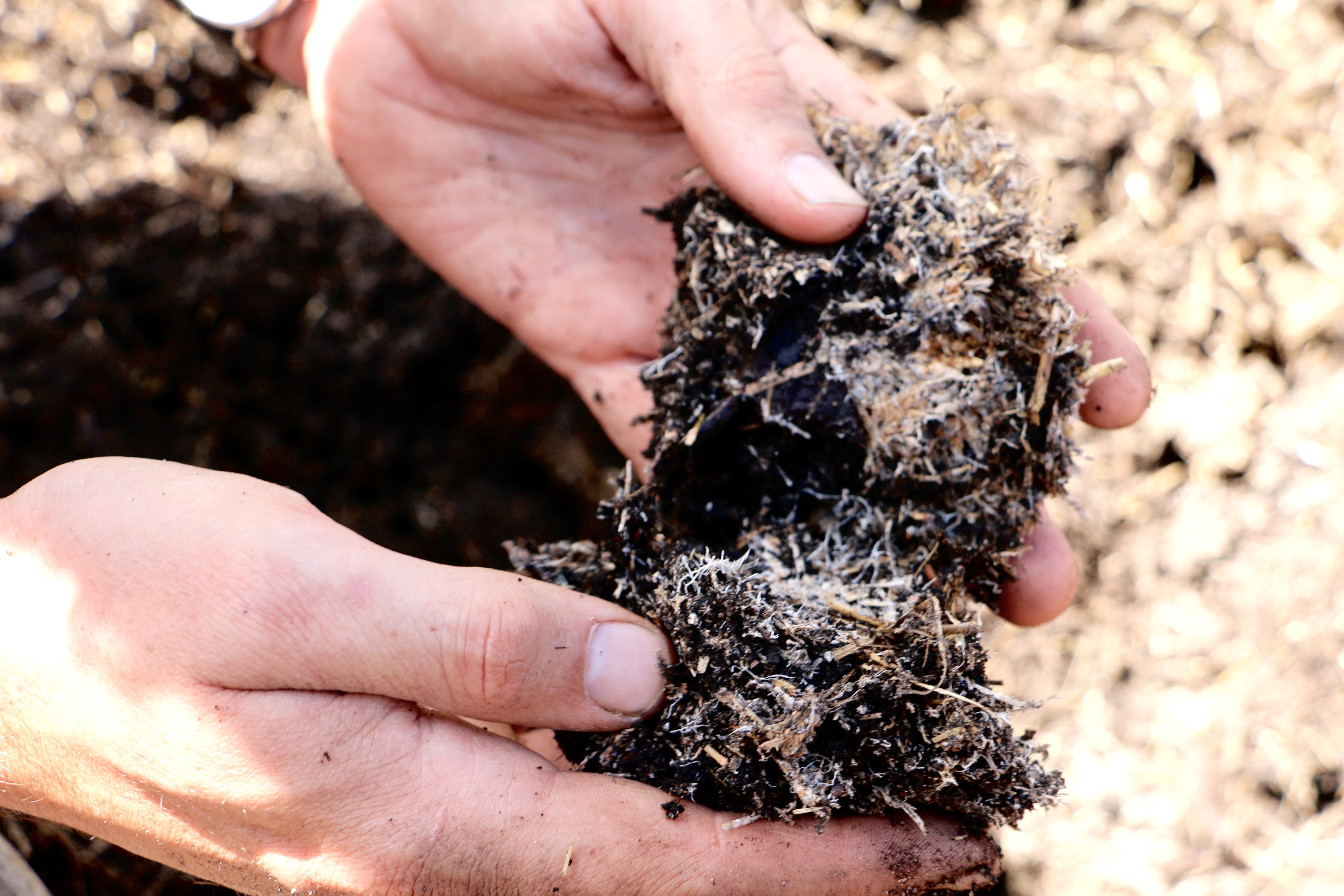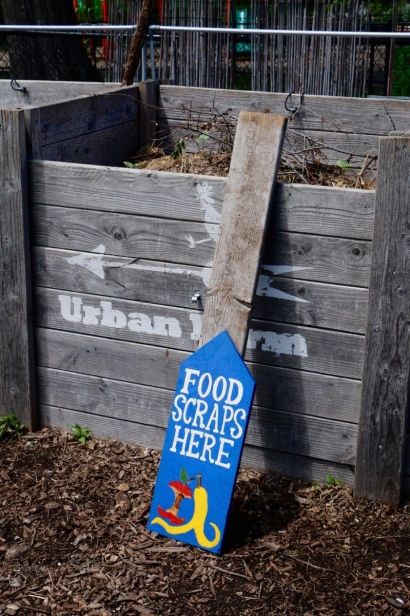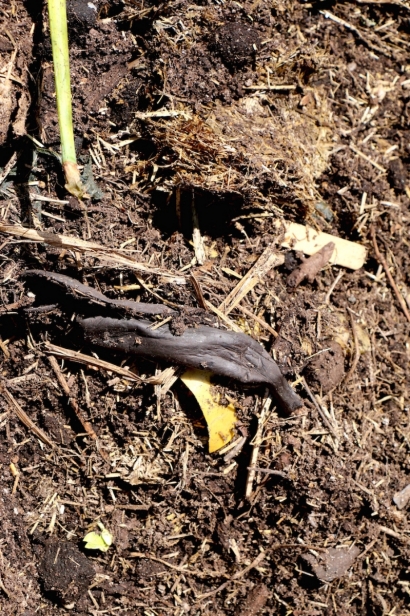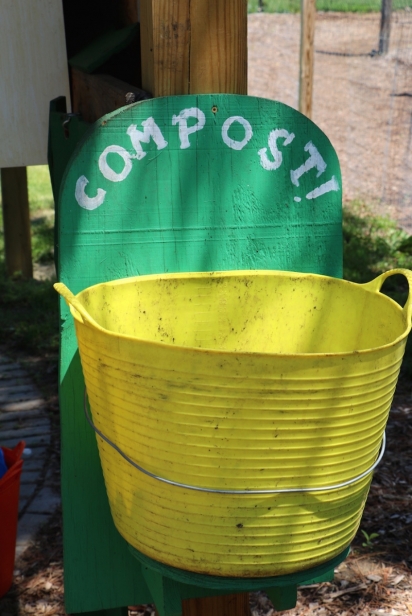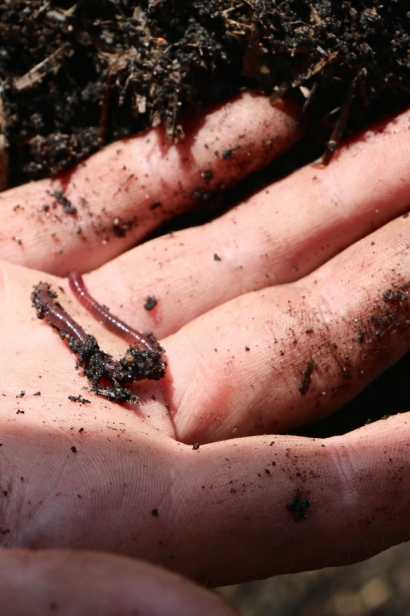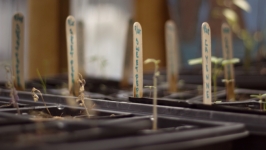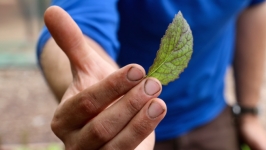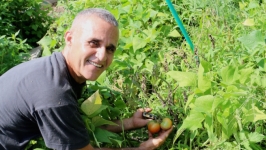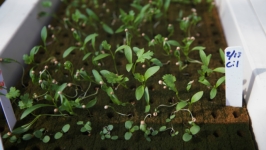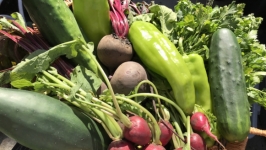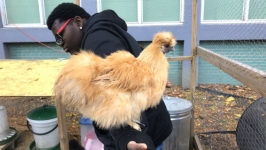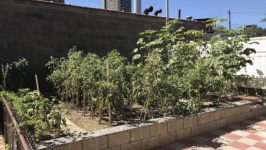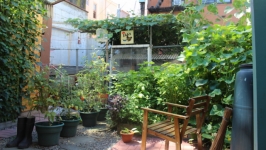Composting in the Bronx Matters
‘Compost happens’ is a bumper sticker and a mantra. But cute as it is, it’s only half-true. Decomposition happens; compost is made to happen. Compost is the product of the controlled biological breakdown of organic materials into a humus-rich, soil-like product. It’s not soil, it’s definitely not dirt, it’s compost. It’s a thing. A really important thing, in fact.
When we compost, we are effectively recycling. It’s both an agricultural activity and a waste diversion strategy. But it’s not just for organic farmers and tree-huggers. Farmers have been composting for thousands of years, and many still do. My own grandfather, who is 96 years old, composted until he could no longer walk on his own. He wasn’t a farmer, he managed a hardware store, but it was a habit he learned as a child, and he never saw a reason to stop. But in recent years there has seen a shift— not only in where people live but how they live. We’ve moved from rural landscapes to urban environs, and we’ve created a lot of trash along the way.
There is no waste in nature, none. The Earth’s cycles are numerous—the water cycle and the carbon cycle, perhaps being the most well-known. These cycles are critical to human existence, both of them are directly related to the choices we make regarding waste. Nature recycles nutrients by way of decomposition. Leaves fall from the trees, plants and animals die in forests, and their bodies—whether flora or fauna—feed the soil to grow new plants which, in turn, feeds the animals. Compost is called ‘black gold’ by farmers and gardeners and research has proven its effectiveness at improving plant health and plant growth.
When folks lucky enough to have a yard rake their leaves, bag their cut grass, and send them ‘away,’ they’re literally starving the soil below. Soil is alive and because it’s alive, it needs food and water—just like we do! By removing these materials, whether on a farm, in the suburbs, or in a tiny Norwood backyard, we’re breaking one of nature’s cycles, specifically, the carbon cycle.
All living things contain carbon—some things contain a lot of carbon, like trees, while others contain much less, like fruits and vegetables. Carbon is one of a multitude of mineral nutrient necessary to all living things. These nutrients feed the soil. More accurately, the nutrients are food for the macro- and micro-organisms which live beneath or at the surface of the soil. Soil macro-organisms include earthworms, snails, centipedes, and pill-bugs. Soil micro-organisms include bacteria, fungi, and actinomycetes. One teaspoon of healthy soil contains upwards of nine billion micro-organisms. That’s more than there are people alive today, in one teaspoon.
Imagine if things didn’t decompose—if they didn’t break down into the soil. Every once-living thing from dinosaurs to redwood trees would just pile up, and we’d be living amongst every dead thing, since the beginning of time.
When we compost, we are replicating one of nature’s cycles (the carbon cycle) by returning organic matter (carbon-based, living things) to the soil. Why is this important? And, why is it essential to city-dwellers whose only ‘yard’ is the closest park or their fire escape? And, how do we compost in the city, specifically the Bronx?
When we throw our food scraps ‘away,’ they end up in a landfill, and we don’t want a world crowded with landfills, but just as important is what happens to organic materials once they are buried in landfills. The materials break down, but they do so without air, which creates methane. Methane is a greenhouse gas 21 times more potent than carbon dioxide. When we throw food into the trash, we’re literally burning up the atmosphere that protects us from burning up.
Another reason that composting is important in an urban environment might seem counter-intuitive—concrete. While most of New York is covered in concrete, the areas where native soils still exist are that much more critical as an environmental buffer. Returning organic matter to the soil by way of compost helps conserve water, restore soils for urban agriculture and landscaping, allows soil ecosystems to flourish, lessens dependence on fossil fuels used to transport waste out of the city, creates jobs, and increases environmental awareness and stewardship.
Last, and closest to my heart, is food. There are over 600 community gardens in New York City with more than 100 in the Bronx. Across New York City and the Bronx, thousands of people grow food in their backyards, on patios and rooftops. Local food matters for a multitude of reasons but unless we protect our local soils, we won’t be able to sustain the gardens and urban farms that sustain us.
We might not worry too much about conserving water (it does come out of the tap after all) or about soil ecosystems (who wants bugs to flourish?) or even about where our food comes from (the grocery store, right?) but even though we may feel separate from the world around us, we’re not. The Bronx is served by the very same water cycle, carbon cycle, nitrogen cycle, etc. as every other part of the world. What we do actually matters. Composting heals the break humans have caused in the earth's cycles.
There are a host of excuses not to compost, but there are exponentially more reasons to compost. We are very fortunate to live in a city where so many composting options are available. The Department of Sanitation offers residential collection in some Bronx neighborhoods. If yours isn’t one of them, you may request the service with permission of the building owner or manager. There are over a dozen drop-off locations in the Bronx and nearly 100 city-wide. If you have a yard and are daring enough to try composting at home, sign up for a free class at the New York Botanical Garden.
For a list of food scrap drop-off locations in the Bronx, visit Grow NYC. To request food scrap collection by DSNY, click here.
For a list of classes offered by the NYC Compost Project, visit NYBG.
To find a community garden in your neighborhood, visit GreenThumb.


